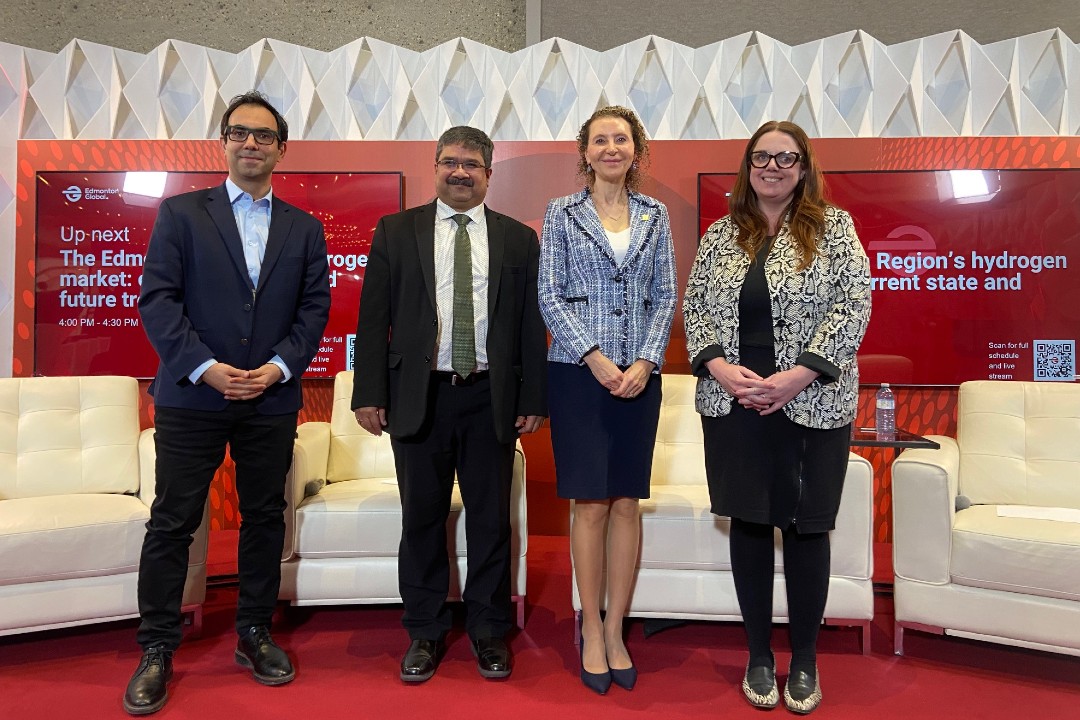
U of A launches Centre for Hydrogen Innovation, aiming for 'transformational impact'
The University of Alberta is launching the Centre for Hydrogen Innovation, Workforce Development and Outreach to influence policy, pair researchers with industry, and develop new technologies.
"I know that all of us in the room today share a vision to develop a sustainable energy future that will see the world achieve net-zero," university president Bill Flanagan said when he announced the centre at the Canadian Hydrogen Convention on April 23, which Taproot attended. "We all know hydrogen is key to getting there, and unlocking hydrogen's potential will have a transformational impact on a global scale. That is the ambitious vision of the University of Alberta."
The centre will serve as a think tank where government and others can gain direct access to the more than 60 researchers within the University of Alberta.
Amit Kumar, a Canada Research Chair who has advised provincial and federal governments on hydrogen strategies, including for Alberta's Hydrogen Roadmap, has been named as the centre's director. "One of the biggest things that the centre has done is bring a number of different kinds researchers under the same umbrella," Kumar said during a panel on the Edmonton Global stage at the convention. "We have expertise in each of these different aspects of the hydrogen value chain. What I expect, and what I hope, is that this centre brings together researchers from across the globe (with) community partners and stakeholders, all under this umbrella where we try to solve some of these challenges."
In January, Kumar and fellow researchers received $1.8 million from Natural Resources Canada for carbon-reducing energy research. The U of A also shared that Kumar was part of the Global Center for Sustainable Bioproducts last October.
Beyond influencing policy, the centre is aimed to accelerate hydrogen technologies and train people for a world that uses more of it. A document that introduces the centre identifies production, storage, transport, and utilization as four main challenges to work on. The centre's work on these challenges is sorted into assessing the value chain, developing the workforce, outreach, and enabling the value chain.
The U of A announcement came at serendipitous timing. In a panel at the conference immediately beforehand, Gregory Vezina of Ontario's Hydrofuel Inc. said Canada does not adequately invest in "basic science" for innovative technology.
While the centre itself is new, the university's work on hydrogen is not. It has developed a catalyst that can produce pure hydrogen from water, successfully tested Alberta's salt caverns as storage for hydrogen, and collaborated with heavy industry and transportation on hydrogen-diesel hybrid engines. The university was also a research partner with the Alberta Motor Transportation Association on hydrogen vehicles. That project was in concert with Alberta's first commercial hydrogen-fuelling station, by Nikola, which folded within a year of opening after Nikola filed for bankruptcy protection.







